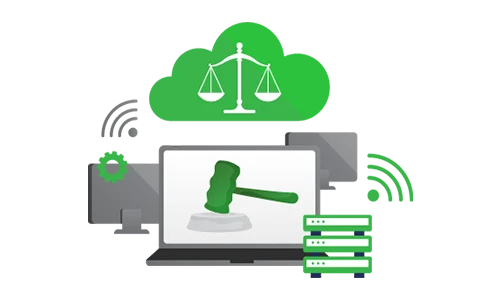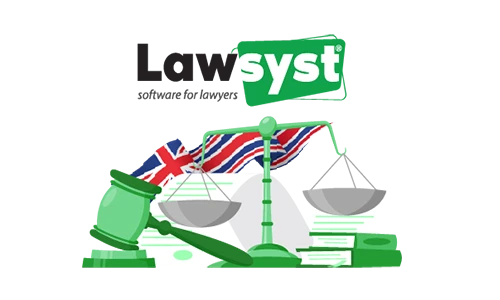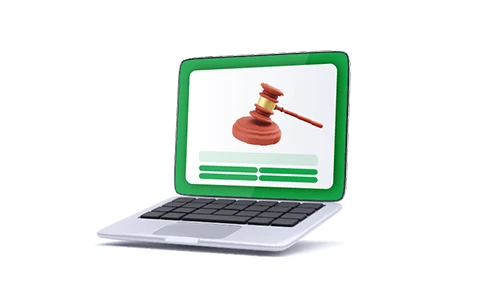In today's digital age, data security and confidentiality have become critical concerns for individuals and organisations across various industries, including the legal sector. Legal professionals handle sensitive and confidential information on a daily basis, ranging from client details to case-related documents. Therefore, implementing robust data security measures in legal software solutions is of utmost importance to safeguard client information, maintain trust, and comply with legal and ethical obligations.
As technology plays an integral role in the legal industry, software solutions have emerged as valuable tools for managing cases, client information, and sensitive documents. However, with the convenience of digital systems comes the responsibility to safeguard data from unauthorised access, breaches, and potential legal implications.
By implementing robust measures such as encryption, access control, regular updates, secure communication channels, audit trails, employee training, and compliance with legal and ethical standards, legal professionals can fortify their data protection practices and maintain the trust and confidence of their clients.
Law firms contain critical and most confidential information and insights about the cases and their clients and it’s crucial that they must have reliable managing software with utmost security. Software that Lawsyst provides to the law firms in the UK, ranging from Intellectual Property Law Management Solution, Labor case management software, immigration law software, and more. These software are built to ensure clients that their critical data and intellectual properties are secure under any circumstances. The important thing that law firms should be concern about is how do they mitigate the firm’s risk of data breaches and breaks and keep the clients data secure. Thus, with the growing technology, the answer always lies in the progressive technologies and software.
This article explores the vital aspects of ensuring data security and confidentiality in legal software solutions.
Encryption and Secure Data Storage
One of the fundamental steps in safeguarding data in legal software solutions is implementing encryption techniques. Encryption converts sensitive information into an unreadable format, ensuring that even if unauthorised access occurs, the data remains protected. Legal software should use industry-standard encryption algorithms to secure data at rest and in transit. Additionally, ensuring secure data storage by employing secure servers, firewalls, and intrusion detection systems is essential to prevent unauthorised access to sensitive information.
By keeping the Immigration Law Case Management Software, intellectual property software UK, Labor law software for lawyers, and other software end-to-end encrypted, there will be much less chances that your data will be get breached or stole. To make this process seamless, it’s necessary to keep an eye out for the application that will take care of the encryption of your software and data. For example, Lawsyst applies the most exceptional and end-to-end encryption to secure the data and legal operations.
Access Control and User Permissions
Legal software solutions should have robust access control mechanisms to restrict unauthorised access to confidential data. Implementing user authentication protocols such as usernames, passwords, and two-factor authentication can help ensure that only authorised personnel can access sensitive information. User permissions should be defined at different levels, allowing administrators to assign specific roles and access rights based on the individual's responsibilities and requirements.
Everyone at your staff doesn’t need to know everything, access to data should be much limited. By keeping an eye out in granting access to view information can help in securing the data and confidential information. Also, by integrating policies and principles by categorizing the access control, reduce the chances of breaches and theft.
Regular Updates and Patches
Keeping legal software solutions up to date with the latest security patches and updates is crucial for maintaining data security. Software vendors should regularly release updates to address vulnerabilities and security flaws identified through ongoing testing and analysis. Promptly applying these updates ensures that any potential vulnerabilities are patched, reducing the risk of data breaches or unauthorised access.
Moreover, it will also help you regulate the stability and performance of systems and networks. The main purpose of this is to fix the bugs and cracks to keep the system going, by doing this efficiently, law firms and businesses in general can avoid interruption and ensure utmost safety.
Data Backup and Disaster Recovery
Implementing a robust data backup and disaster recovery strategy is vital to ensure that data remains accessible even in the event of a security breach, system failure, or natural disaster. Legal software solutions like Intellectual Property Law Management Software, immigration case management system, Labor case management software, and more should have automatic and regular data backups, ideally stored in secure off-site locations or encrypted cloud storage. Conducting periodic recovery tests to verify the integrity of backups can help identify and rectify any issues before they become critical.
By taking necessary steps in keeping the data back, saving files in different safe and remote locations, creating or updating copies of files and cases you will be able to resume your business and operations in the event of data loss due to the file damage, corruption of data, cyberattacks or even due to natural disasters.
Secure Communication Channels
Legal professionals often need to communicate sensitive information through various channels, including emails, messaging platforms, and document sharing. To ensure data security and confidentiality, legal software solutions should integrate secure communication channels with encryption capabilities. End-to-end encryption can be used to protect the content of messages or documents, making them unreadable to unauthorised parties.
Secure communication channels enhance data security by encrypting information, protecting against eavesdropping and interception, mitigating man-in-the-middle attacks, facilitating secure file transfers, and defending against phishing and social engineering attempts. By implementing these channels in legal software solutions, professionals can maintain the confidentiality and integrity of sensitive data, fostering trust and confidence in their communication practices.
Audit Trails and Activity Logs
Maintaining a detailed audit trail and activity logs within legal software solutions is crucial for tracking and monitoring user activities. These logs can help identify any suspicious or unauthorised access attempts, allowing for timely investigation and response. By logging user actions, including data access, modification, and deletion, legal professionals can maintain accountability and trace any potential breaches back to their source.
Moreover, audit trails and activity logs serve as valuable forensic tools in the event of a data breach or legal dispute. They provide a comprehensive record of user activities, timestamps, and system events, which can be used as evidence or for compliance purposes. These logs can aid in reconstructing the sequence of events, identifying the responsible parties, and assessing the impact of any security incidents.
Furthermore, they enable organisations to demonstrate regulatory compliance and adherence to internal policies. By regularly reviewing and analysing audit trails and activity logs, legal professionals can proactively detect and mitigate security risks, ensuring the integrity and confidentiality of sensitive data.
Employee Training and Awareness
Data security and confidentiality are not only the responsibility of the software solution but also the individuals handling the data. Providing regular training and awareness programs to legal professionals regarding data security best practices, such as strong password management, identifying phishing attempts, and recognising potential threats, is essential. By educating employees about the importance of data security, organisations can mitigate the risk of human error and enhance overall data protection.
Effective employee training and awareness programs are crucial for ensuring data security and confidentiality in legal software solutions. By providing regular training sessions, workshops, and educational materials, organisations can equip legal professionals with the knowledge and skills necessary to handle sensitive data securely. These programs should cover topics such as strong password management, the risks associated with social engineering and phishing attempts, safe browsing habits, and the proper handling of confidential information.
Employee training and awareness programs also play a vital role in mitigating the risk of human error, which is a common cause of data breaches. By educating employees about the consequences of data breaches and emphasising the importance of data security, organisations can foster a sense of responsibility and accountability among their staff.
Compliance with Legal and Ethical Standards
Legal software solutions should comply with applicable legal and ethical standards, such as data protection regulations like the General Data Protection Regulation (GDPR) or industry-specific regulations. By adhering to these standards, legal professionals can ensure that client data is handled in a lawful and ethical manner, promoting trust and confidence in the software and the legal practice.
By promoting a culture of security awareness, organisations can empower their employees to recognise potential threats and respond appropriately. This includes being vigilant about suspicious emails or messages, verifying the authenticity of communication channels, and adhering to data security policies and procedures. Regular training refreshers and updates should be conducted to keep employees informed about the latest security trends and best practices.
Regular assessments and audits should be conducted to verify compliance and address any potential gaps or vulnerabilities. By prioritising compliance, legal professionals can demonstrate their commitment to safeguarding data and maintaining the highest standards of integrity.






